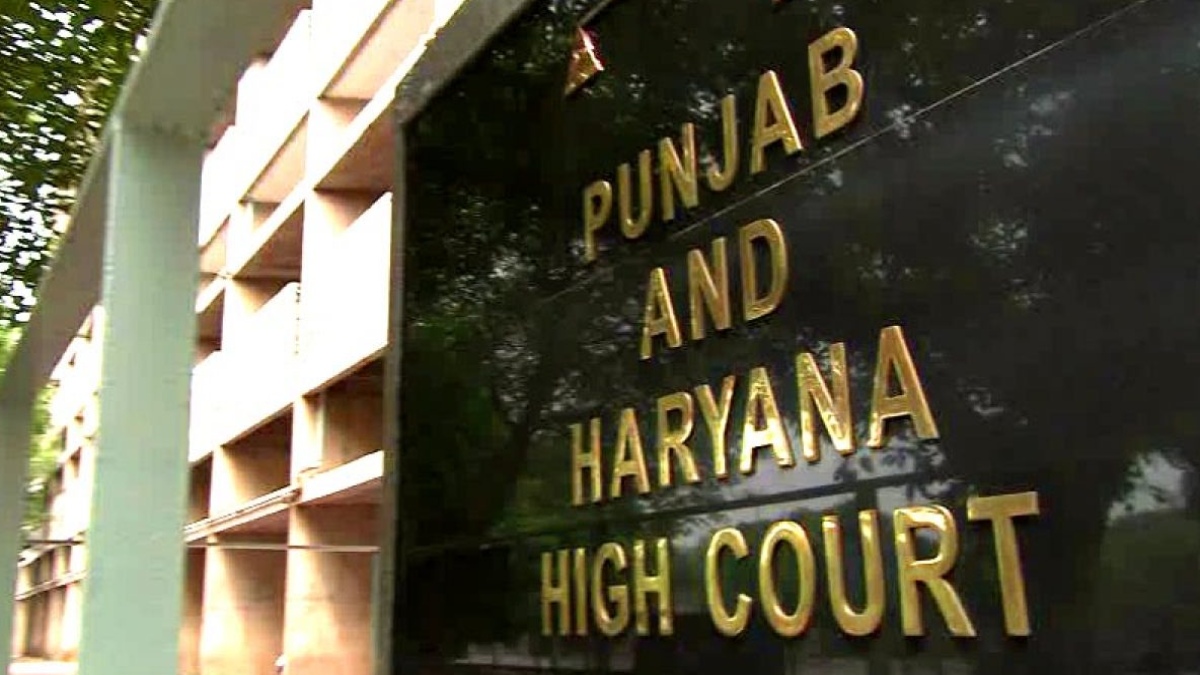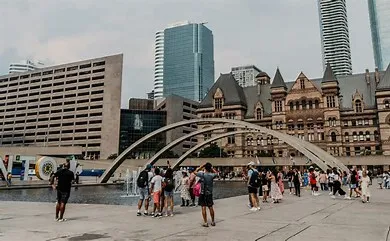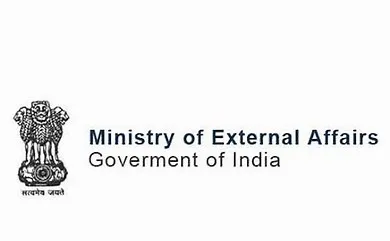In a clear signal to all those sons who fight with their father on one pretext or the other, the Punjab and Haryana High Court has in a learned, latest, laudable and landmark judgment titled Anil Kumar Dhiman and another vs State of Haryana and others in CRWP-1357-2019 delivered just recently on September 21, 2021 upheld an eviction order passed against a son and his wife at the insistence of the father under the Maintenance and Welfare of Parents and Senior Citizens Act, 2007 (Senior Citizens Act). It must be apprised here that the father in this case had not transferred the house in question to the son by way of gift or any other deed. It also ought to be mentioned here that the Court held unequivocally that the son cannot insist that he has the right to stay in his father’s house by saying that he has contributed to the renovation of the ground floor of the house.
To start with, a single Judge Bench comprising of Justice Harnaresh Singh Gill of Punjab and Haryana High Court who has authored this brief, brilliant, bold and balanced judgment sets the ball rolling by first and foremost putting forth in the opening para that, “Life is full with extraordinary challenges and unrivalled opportunities, but such chances must not be used against those, who parented you. With the birth of the children, the parents feel the paramount bliss of the Supreme Power and thank Him. However, when the very children, who the parents have reared with untold sorrows and miseries, throw them at the mercy of their destiny and use their muscle power to torture and harass them, the parents’ world gets totally shattered. They become helpless from all sides and thus, begins the unfortunate tale of their moving from one Forum to another for redressal of their grievance(s).”
On a personal note, even my best friend Sageer Khan used to confide in me way back in 1993-95 that, “Nation, parents and religion are non-negotiable and can never be changed under any cost and under any circumstances.” He used to further say that parents stand at the topmost because it is due to your parents that you are born in India and it is due to your parents that you belong to a particular religion and therefore nation and religion just like parents can never be changed and one should never even ever think of doing so even in the wildest of dreams! No denying it!
To be sure, the Bench then further says that, “In the holy script of Sri Guru Granth Sahib, Sri Guru Ram Dass has written ‘KAAHAY POOT JHAGRAT HA-O SANG BAAP/ JIN KAY JANAY BADEERAY TUM HA-O TIN SIO JHAGRAT PAPP//” (O son, why do you argue with your father? It is a sin to argue with the one who fathered you and raised you).”
Needless to say, the Bench then further waxes eloquent to observe that, “The above words of prudence guide us that we have to treat our parents as God. The instant case is a classic example of the aforesaid narration, wherein the petitioners are seeking the equities entirely forgetting that it is because of their conduct that their old and aged parents had to seek the petitioners’ eviction so as to buy back their peace and freedom.”
As we see, the Bench then points out in the next para that, “The present criminal writ petition has been filed under Article 226/227 of the Constitution for issuance of a writ in the nature of mandamus directing respondents No.1 to 3 to protect the life and liberty of the petitioners at the hands of respondents No.4 and 5 and mandate them not to interfere in the property of the petitioners. A prayer has also made to dismiss the application filed by respondent No.4 under the Maintenance and Welfare of Parents and Senior Citizens Act, 2007 (hereinafter referred to as ‘the 2007 Act’), wherein the petitioners have been ordered to be ejected from the house in question.”
To put things in perspective, the Bench then while dwelling on the facts of the case envisages in next para that, “The facts, in brief, of the case are that respondent No.4 filed an application under the provisions of the 2007 Act against the petitioners i.e. his son-petitioner No.1 and daughter-inlaw/petitioner No.2, with the averments that he purchased the plot, vide registered sale deed No.4293 dated 25.03.1997, and had raised the construction over it. The petitioners herein were not treating respondents No.4 and 5 properly and depriving them even of the basic necessities. The petitioners wanted to grab the property of respondents No.4 and 5 and owing to their behaviour, respondents No.4 and 5 had disowned petitioner No.1 from their movable and immovable property. Respondents No.4 and 5 requested the petitioners to vacate the house in question, but to no avail. On their application, Sub Divisional Magistrate, Thanesar, reported that respondent No.4 is owner of the house and behaviour of the petitioners towards him and his wife is not good and the petitioners are even not fulfilling the daily needs of respondents No.4 and 5.”
As it turned out, the Bench then reveals that, “The Sub Divisional Magistrate in his report had recommended ejectment of the petitioners and sent the same to the office of the District Magistrate and vide order dated 17.07.2019, District Magistrate, Kurukshetra, had ordered ejectment of the petitioners from the house in question.”
Truth be told, after hearing the parties, the Bench then observes that, “It is the case of respondent N.4 that the house in question is his self acquired property, and rather it is not a joint Hindu family property. The Sub Divisional Magistrate sent the report that as per the sale deed No.4293 dated 25.03.1997, respondent No.4 is the owner of the house in question. On the basis of the report sent by the Sub Divisional Magistrate, the District Magistrate, Kurukshetra, had ordered ejectment of the petitioners from the house in question. The petitioners have not filed any document to show that respondent No.4 has gifted the house in question to the petitioners. For the sake of arguments, assuming that the respondent No.4 had gifted the house to the petitioners, even then the transfer of property is to be held void in certain circumstances.”
Be it noted, the Bench then deems it appropriate to specify in the next para that, “It would be apposite to first refer to Section 23 and then Section 22 of the 2007 Act and Rule 24 of the Rules, which are reproduced as under:-
“SECTION 23 OF THE ACT
23. Transfer of property to be void in certain circumstances.– (1) Where any senior citizen who, after the commencement of this Act, has transferred by way of gift or otherwise, his property, subject to the condition that the transferee shall provide the basic amenities and basic physical needs to the transferor and such transferee refuses or fails to provide such amenities and physical needs, the said transfer of property shall be deemed to have been made by fraud or coercion or under undue influence and shall at the option of the transferor be declared void by the Tribunal.
(2) Where any senior citizen has a right to receive maintenance out of an estate and such estate or part thereof is transferred, the right to receive maintenance may be enforced against the transferee if the transferee has notice of the right, or if the transfer is gratuitous; but not against the transferee for consideration and without notice of right.
(3) If, any senior citizen is incapable of enforcing the rights under sub-sections (1) and (2), action may be taken on his behalf by any of the organization referred to in Explanation to sub-section (1) of section 5.”
SECTION 22 OF THE ACT
“22. Authorities who may be specified for implementing the provisions of this Act.- (1) The State Government may, confer such powers and impose such duties on a District Magistrate as may be necessary, to ensure that the provisions of this Act are properly carried out and the District Magistrate may specify the officer, subordinate to him, who shall exercise all or any of the powers, and perform all or any of the duties, so conferred or imposed and the local limits within which such powers or duties shall be carried out by the officer as may be prescribed.
(2) The State Government shall prescribe a comprehensive action plan for providing protection of life and property of senior citizens.”
RULE 24 OF THE RULES
24. Action plan for the protection of life and property of senior citizens. [Section 22]. — An action plan under section 22(2) shall be notified by the State Government within a period of six months from the date of publication of these rules in the Official Gazette and may be revised from time to time.””
Quite significantly, the Bench then makes it clear in next para that, “Undoubtedly, Section 23 of the 2007 Act deals with the validity of transfer of property in certain circumstances. It provides that if a senior citizen who, after the commencement of the 2007 Act, has transferred by way of gift or otherwise, his property, with the condition that the transferee would provide basic amenities and basic physical needs to the transferor, who thereafter refuses or fails to provide such amenities and physical needs, then the transfer of the property made by the senior citizen shall be deemed to have been made by fraud or coercion or under undue influence and shall at the option of the transferor, be declared void by the Tribunal. It further provides that if a senior citizen has a right to receive maintenance out of an estate and such estate or part thereof is transferred, then the senior citizen would have a right to receive maintenance from the transferee if the transferee has notice of the right or if the transfer is gratuitous but he would not be entitled to receive maintenance from the transferee to whom he has transferred the property for consideration and without notice of his right of maintenance as provided under Section 23(2) of the Act. It further provides that if a senior citizen is incapable of enforcing the right under Sections 23 (1) and (2) of the Act, then he can be helped by any of the organizations which are referred to in Explanation to Section 5(1) of the 2007 Act.”
Of course, the Bench then points out that, “Insofar as Section 22 of the 2007 Act is concerned, it provides for the powers and duties imposed upon the District Magistrate/State Government for implementation of the provisions of the Act and also a comprehensive action plan for providing protection to the life and property of the senior citizens.”
Quite significantly, the Bench then hastens to add that, “Rule 24 of the Rules further provides that the action plan under Section 22(2) of the 2007 Act has to be notified by the Government. Needless to mention that in pursuance of Section 22(2) of the Act and Rule 24 of the Rules, the Government of Haryana has issued a notification No.530SW-(4)-2015 dated 26.05.2015, laying down the action plan for the protection of life and property of senior citizens. The relevant portion of the aforesaid notification in regard to the procedure for eviction from the property/residential building belonging to/occupied by senior citizen/parents is as under:-
“(1) Procedure for eviction from the property/residential building belonging to/occupied by Senior Citizen/Parents.—
i. Complaints received (as per provisions of the Maintenance of Parents and Senior Citizen Act, 2007) regarding life and property of Senior Citizens by different Department, NGOs/Social Workers, Helpline for Senior Citizens and District Magistrate himself, shall be forwarded to the District Magistrate of the concerned district for further action.
ii. The District Magistrate, shall immediately forward such complaints/application to the concerned Sub Divisional Magistrates for verification of the title of the property and facts of the cases through Revenue Department/concerned Tehsildars/spot verification within 15 days from the date of receipt of such complaints/application.
iii. The Sub Divisional Magistrates shall immediately submit his/her report to the concerned District Magistrate for final orders within 21 days from the date of receipt of the complaint/application.
iv. If the District Magistrate is of opinion that any son or daughter or legal heir of a senior citizen/parents are in unauthorized occupation of any property as defined in the Maintenance and Welfare of Parents and Senior Citizens Act, 2007, and that they should be evicted, the District Magistrate shall issue in the manner hereinafter provided a notice in writing calling upon all persons concerned to show cause as to why an order of eviction should not be issued against them/him/her.
v. The result Shalla. specify the grounds on which the order of eviction is proposed to be made; and b. require all persons concerned, that is to say, all persons who are, or may be, in occupation of, or claim interest in, the property/premises, to show cause, if any against the proposed order on or before such date as is specified in the notice, being a date not earlier than ten days from the date of issued thereof.
c. The District Magistrate shall cause the notice to be served by having it affixed on the outer door or at some other conspicuous part of the public premises and in such other manner as may be prescribed, whereupon the notice shall be deemed to have been duly given to all person concerned.
(2) Eviction Order from property/residential building of Senior Citizen/parents.—
i. If, after considering the cause, if any, shown by any person in pursuance to the notice and any evidence he/she may produce in support of the same and after giving him/her a reasonable opportunity of being heard, the District Magistrate is satisfied that the property/premises are in unauthorized occupation, the District Magistrate or other officer duly authorized may make an order of eviction, for reasons to be recorded therein, directing that the property/residential building shall be vacated, on such date as may be specified in the order, by all persons who may be in occupation of any part thereof, and cause a copy of the order to be affixed on the outer door or some other conspicuous part of the public premises;
ii. The District Magistrate may also associate NGOs/Voluntary organizations/social workers working for the welfare of senior citizens for the enforcement of eviction order.
(3) Enforcement of Orders.—
i. If any person refuses or fails to comply with the order of eviction within thirty days from the date of its issue, the District Magistrate or any other officer duly authorized by the District Magistrate in this behalf may evict that person from the premises in question and take possession.
ii. The District Magistrate, of the concerned district shall have powers to enforce the eviction orders through the Police Department.
iii. The District Magistrate, of the concerned district shall further arrange to hand over the property/premises in question to the concerned Senior Citizens/parents.
iv. The District Magistrate, of the concerned district shall forward a monthly report of such cases to the Director General, Social Justice & Empowerment Department, Haryana, Chandigarh by 7th of the following month for review of such cases in the State Council for Senior Citizens constituted under the Maintenance and Welfare of Parents and Senior Citizens Act, 2007 and Rules of 2009 framed under the said Act under the Chairmanship of the Hon’ble Minister of Social Welfare, Haryana.””
No doubt, the Bench then also points out that, “It is provided in the action plan as to how the property of a senior citizen, which includes a residential building, can be got vacated from his son, daughter or legal heir(s) while in an unauthorized occupation and how the said order is to be enforced.”
As a corollary and most pertinently, the Bench then very rightly deduces in the next para that, “A perusal of the above provisions would make it explicit that there is a provision for eviction in the 2007 Act. Besides, the instant is not a case wherein any transfer or gift has been executed by respondent Nos.4 and 5 in favour of the petitioners. Thus, the petitioners cannot maintain their claim on the alleged ground that petitioner No.1 had contributed towards the renovation of the house.”
Furthermore, the Bench then also enunciates in the next para that, “It may be noticed that even in the cases, where a gift deed was executed by the parents in favour of the children, it was held that irrespective of any condition regarding providing to the transferor the basic amenities, the transferee would be bound to maintain the transferor. Reference in this regard may be made to the Division Bench judgment of this Court in CWP-5086-2016, titled as Smt. Raksha Devi Vs. Deputy Commissioner-cum-District Magistrate, Hoshiarpur and others, decided on 03.05.2018.”
Finally, the Bench then arrives at the ostensible conclusion holding that, “Thus, in view of the above discussion, I do not find any merit in the present petition and hence, the same is hereby dismissed.”
In conclusion, we thus see that the Punjab and Haryana High Court minces just no words to send across a loud and clear message to all sons that, “We have to treat our parents as God.” Those sons who don’t take care of their parents are not entitled to stay in father’s house. It is also made clear that just by contributing to renovation son acquires no interest in father’s house. This commendable, cogent, composed and convincing judgment once again makes it clear what my best friend Sageer Khan also once said in 1993-95 that, “Parents stand above everything else. Religion and nation also come below them as the question of we hail from which religion or nation also is due to our parents only. So parents stand above everything else!” There can be just no denying or disputing it!























